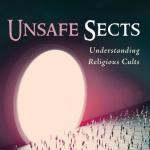Belong, Believe, Behave?
Some years ago I began to hear this motto especially among those associated with the so-called “emerging churches.” I spoke at several such churches, had students affiliated with them, spoke at conventions where they gathered.
The “new idea” often floated around in those circles was to allow people to belong (to the church) before they believe and certainly before they behave. Here, “believe” most often meant believe in the gospel and traditional truths of evangelical Christian orthodoxy. “Behave” most often meant something like “conform you personal lifestyle with biblical ethics and practices.”
I still hear this mantra occasionally: “Belong, believe, behave.” The order is what’s important here. Church leaders and others are meant to embrace unbelievers within full Christian fellowship, hoping that the church’s teaching and preaching will convince them to believe and eventually to change their lives.
I never believed this is a good idea. Of course, everything depends on what “belong” means. And I never heard that fully or adequately explained.
To me, to belong to a church means to agree with its core teachings and at least seek to conform to its ethical principles and rules. It might mean more, but to me it means at least that.
Can we imagine the ancient churches of the Roman Empire (and beyond) fully embracing a fellow adherents as equal communicants who do not believe in Jesus Christ’s resurrection, in Jesus Christ as Lord and Savior, in their need for God’s grace?
Now, if “belong” only means to welcome someone into attendance (in worship, Sunday School, Bible studies, etc.), that’s a different matter. But most moderate evangelical churches have always done that! The issue must be membership, otherwise “belong, believe, behave” has no newish meaning and it was promoted as a new policy among leaders of the emerging churches networks.
I know that someone will point to churches that have no traditional membership as such—yet. My response is that they do; it just maybe that they restrict “membership” to a few congregational leaders (pastoral staff, elders, deacons, whatever). And I would ask such churches what “belong” means if they strive to adopt a policy of belong, believe, behave. And I would ask them how long a person can be embraced as part of the congregation (as opposed to a visitor) if they do not come to believe and behave?
I certainly don’t promote the idea that a church member must agree with every “jot and tittle” of a longish doctrinal statement, but surely he or she ought to agree with the “heartbeat” and “ethos” of the church including basic biblical orthodoxy (speaking here of evangelical churches) and ought not to be proud of any “besetting sin” but seek to overcome it with the help of the congregation and the Holy Spirit.
I’m not surprised that the “emerging” or “emergent” church movement fizzled out. As I attended and spoke at an annual convention of their pastors and other leaders (a convention that no longer meets), I detected a definite lack of consensus about anything other than being “authentic” and different from traditional churches. One speaker, a major leader in the movement, spoke about how preaching is a violent act. I pointed out to him over lunch that he just committed a violent act. He was not amused.
There was just a lot of experimentation going on among the different congregations, leaders and thinkers associated with the emerging/emergent churches movement. Too much, in my humble opinion. It reminded me of the Jesus People Movement without the emotion. No center.
Some of you who remember the heyday of the movement (1990s into the first decade of this century) may remember that my friend Stanley Grenz was considered something of a leading theologian among emergent church people. I suspect that was because of his talk about a postmodern contribution to Christianity. But he told me privately that the sole reason he accepted the informal position of theologian of the emerging church/emergent church movement was to try to keep them theologically serious and balanced. He considered himself, so he told me, a “missionary” to them. I doubt many, if any, of them realized that. He thought there was a kind of anti-theological trend among many of the leading spokespersons of the movement.
*Note: If you choose to comment, keep it relatively brief (no more than 100 words), on topic, addressed to me, civil and respectful (not hostile or argumentative), and devoid of pictures or links.*














